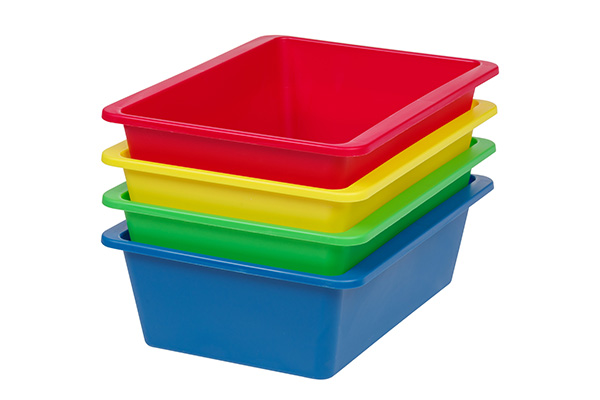Plastic bins are a staple in many homes, offices, and warehouses. They help organize clutter, store seasonal items, and even protect valuable belongings. However, as more people become concerned about the materials they use daily, a common question arises: Are plastic bins safe?
The answer is not a simple yes or no. The safety of plastic bins depends on several factors, including the type of plastic used, what the bins are storing, and where they are placed. Let’s explore these factors to better understand when and how plastic bins are safe to use.

Understanding Plastic Types
Plastics are made from a variety of chemical compounds, and not all plastics are the same. Different types are identified by a recycling number, usually found on the bottom of the container. Some common types of plastics used in bins include:
-
Polypropylene (PP, recycling number 5): Lightweight, strong, and resistant to many chemicals. It is generally considered safe for food and household storage.
-
High-Density Polyethylene (HDPE, recycling number 2): Very durable and resistant to impact and moisture. Often used for heavy-duty storage bins.
-
Polyvinyl Chloride (PVC, recycling number 3): Less commonly used for bins, but it can contain harmful chemicals like phthalates if not properly formulated.
-
Polycarbonate (PC, recycling number 7): Very tough but may contain bisphenol A (BPA), a chemical that has raised health concerns.
Choosing bins made from safe, food-grade plastics like PP and HDPE is the best way to ensure safety, especially if the bins will be in close contact with food, children’s toys, or sensitive items.
Concerns About Chemicals
One of the main concerns with plastic storage bins is chemical leaching. Certain plastics can release harmful chemicals, especially when exposed to heat, sunlight, or acidic substances. For example, BPA, often found in older or cheaper plastic products, has been linked to hormone disruption and other health issues.
Today, many manufacturers clearly label their products as BPA-free or food-safe. If you plan to use plastic bins for storing food, baby supplies, or pet food, it’s crucial to choose bins that are certified safe for these purposes.
For general storage of clothing, tools, books, or seasonal decorations, the risk is much lower, and standard plastic bins are generally safe to use.
Environmental Factors
Another factor to consider is how plastic bins are stored and used. Prolonged exposure to direct sunlight can cause plastic to degrade over time, making it brittle and prone to cracking. Degraded plastics can release particles into the environment, contributing to microplastic pollution.
To maximize safety and durability, it’s best to keep plastic bins in cool, shaded, or indoor areas when possible.
Alternatives to Plastic Bins
If you have concerns about plastic safety, there are alternatives. Metal storage bins, wooden crates, and woven baskets offer natural or more durable storage options. However, each alternative also comes with its own pros and cons, such as weight, cost, and maintenance needs.
Tips for Safe Use of Plastic Bins
-
Check for Labels: Look for bins labeled “BPA-free,” “food-safe,” or “recyclable.”
-
Use for Intended Purpose: Don’t store food in bins not labeled safe for food storage.
-
Avoid Heat Exposure: Keep bins out of direct sunlight and away from heat sources.
-
Inspect for Damage: Replace bins that are cracked, brittle, or heavily scratched to avoid chemical release.
-
Recycle Responsibly: When bins reach the end of their life, recycle them according to local guidelines.
Conclusion
In general, plastic bins are safe when used appropriately and chosen wisely. Bins made from food-grade plastics like polypropylene and HDPE pose minimal health risks, especially when kept out of harsh environmental conditions. By paying attention to the type of plastic, how you use the bins, and where you store them, you can enjoy the convenience of plastic storage with peace of mind.
Plastic bins remain a practical and economical storage solution for homes, businesses, and industries around the world — and with a little care, they can be a safe one too.
Post time: 04-29-2025



